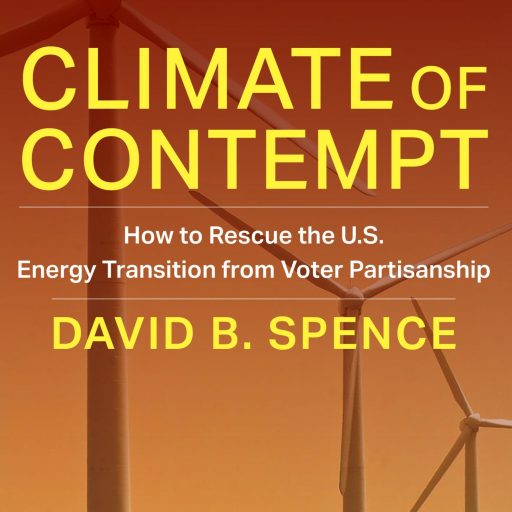I intend for this blog to serve as a continuing resource for students, journalists and others who are interested in avoiding the distorted picture of the energy transition – and its politics – that online news and information presents to each of us. As with the rest of this web site, it is intended to supplement the analysis in Climate of Contempt. I will start adding substantive blog posts here as the book’s publication date — August 6, 2024 — gets nearer.
I wrote Climate of Contempt out of a sense that a generation of young people are coming to political maturity in an online world that makes it difficult to develop a full understanding of policy problems, U.S. politics and each other. One manifestation of that is that advocates of stronger climate policy are basing their understanding of the energy transition on a flawed mental model of U.S. politics.
While the dominant public narratives surrounding the energy transition chalk up the weakness of U.S. climate policy to capture or corruption of the policy process, most empirical social science places central importance on increasingly bitterly partisan voters as a driver of congressional dysfunction. And modern electronic media is a powerful amplifier of that bitter partisanship.
Part of the problem for learners is that many of the most experienced expert voices on the energy transition are not on social media. To the extent journalists, writers and voters look online for expertise, they will not get a complete picture of the underlying issue. At the same time, people who avoid online political discussion may be blissfully unaware of how vitriolic it can be, and how it influences offline news, and so their own belief formation. Part II of Climate of Contempt (chapters 4-6) tries to explain the research documenting the various pathologies of online news gathering and belief formation; it then uses examples to illustrate their pernicious effects on climate and energy policymaking.
But the massive scale of the problem makes it difficult to convey its power in a limited space. I tried to supplement the discussion in the book with a more extended discussion of these communication issues in the online appendices, particularly appendices F and G. This blog supplements those efforts.
At the same time, we plan to resurrect the EnergyTradeoffs.com web site, which had gone dormant with the onset of the COVID pandemic. Going forward we will use that site to amplify those academic experts who are not well represented on social media, and whose work dives into the difficult tradeoffs that must be resolved to move the energy transition forward.
These perspectives are too easily overlooked (and dismissed) in an online world that rewards emotional expressions of contempt for policy opponents. So this blog will try to continue to focus on the voter-centric, bottom-up explanation of our political dysfunction that gets far less attention than it deserves. – David Spence

